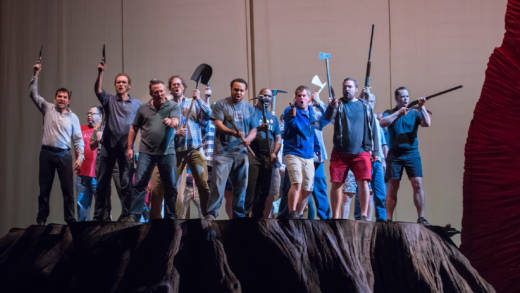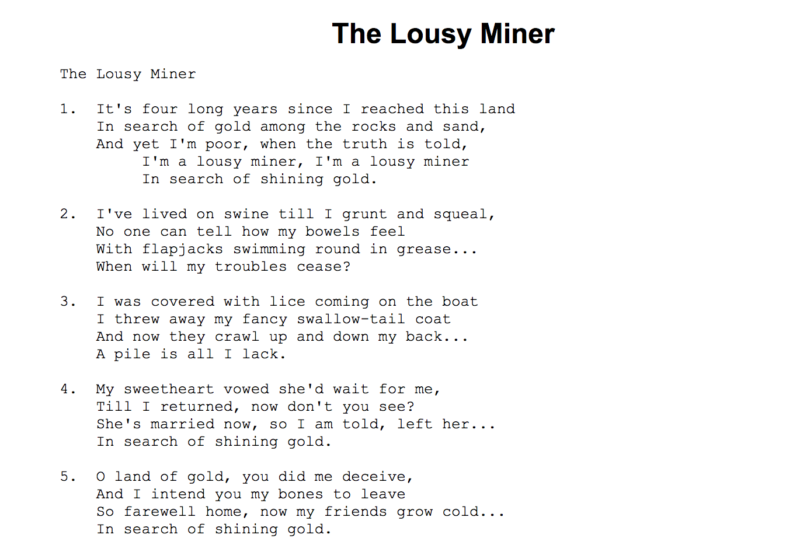Beyond details gleaned from artifacts like early photographs and hand-written letters, what we know of miners’ lives during California’s Gold Rush era comes to us from mining songs — the simple, homespun ditties that prospectors sang in the 1850s and ’60s.
Girls of the Golden West, a new San Francisco Opera production by Berkeley composer John Adams, features quite a few of these songs. But Adams radically transformed the melodies in his opera to show a darker side of California history — one that resonates with news headlines in this country today.

In their original form, some of the mining songs were romantic, clownish, or happy-go-lucky, while others were more melancholy, covering such themes as missing loved ones back home, the long and difficult journey out west, and the hardships of a miner’s life.
They were published in chapbooks only as lyrics, without musical notation of any kind. The new lyrics were simply sung to already familiar folk tunes of the day like “Oh Susanna,” “Old Folks at Home,” and “Camptown Races.”
At a recent symposium about Girls of the Golden West, Adams confessed to not finding the melodies very interesting. But he responded strongly to the raw emotions of the words, and wanted to use them to tell what he sees as a more truthful story of mining life in the mid 1800s.




